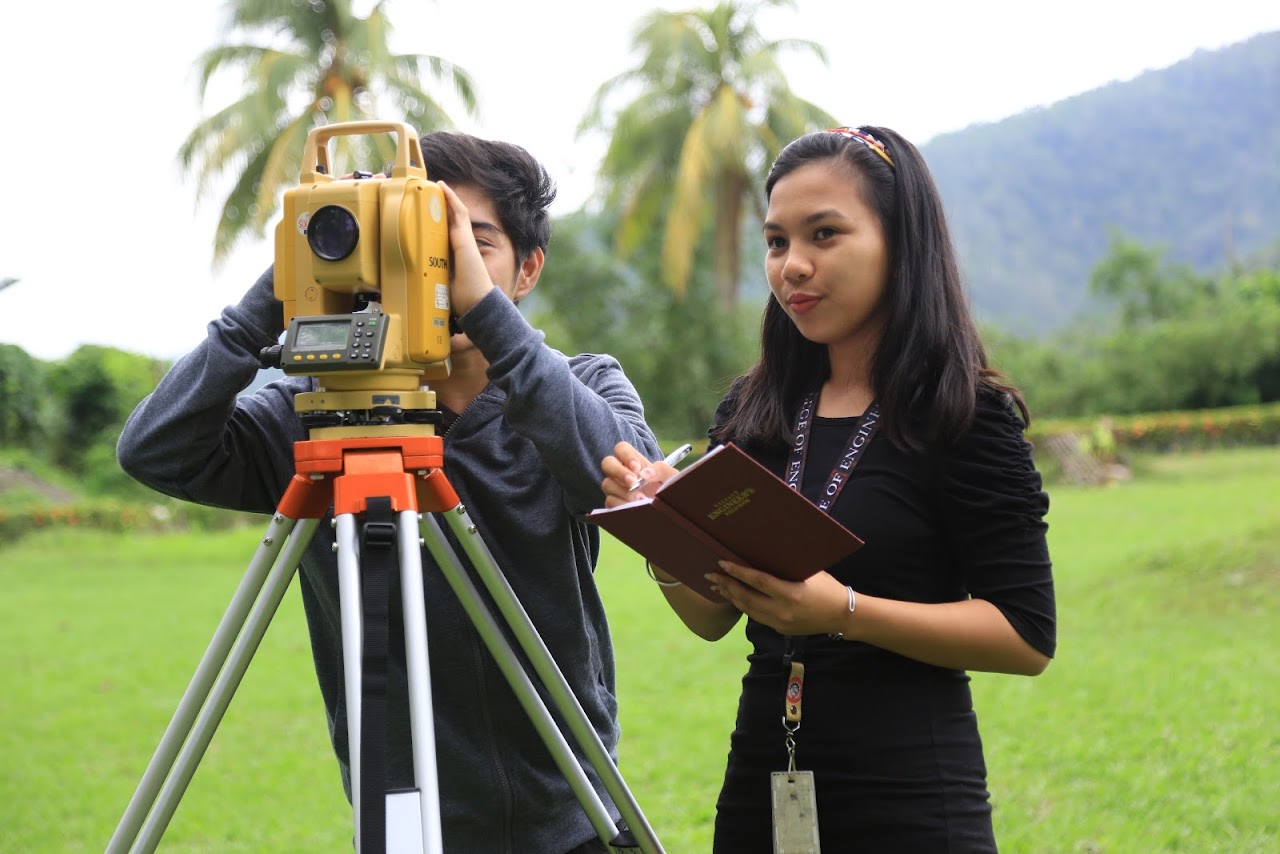Bachelor of Science in Geodetic Engineering

The Department
The Bachelor of Science in Geodetic Engineering (BSGE) has been offered under the Department of Geodetic Engineering (DGE) since 2003. The department is one of the best-performing academic departments at VSU owing to its 100% passing rate in the licensure examinations. Graduates from this department have since topped in licensure examinations and have been in-demand in companies.
DGE offers both Certificate in Geodetic and Geomatics Technology (CGGT), and Diploma in Bachelor of Science in Geodetic Engineering.
Goals
- Produce highly competent and world-class professionals in geodetic engineering;
- Generate and disseminate relevant knowledge and technologies that lead to improved productivity, profitability and sustainability of land and its resources;
- Establish dynamic linkages with industries and other agencies to geodetic engineering; and
- Provide functional and adequate infrastructure and related facilities essential to a world-class instruction, innovative research and extension, sustainable resource generation and efficient administration.
Objectives
Instructions
- Provide leadership in planning, implementing, and monitoring geodetic engineering projects and programs; and
- Occupy supervisory positions in private and public organizations; locally and internationally.
Research
- Develop research and extension manpower capabilities and research facilities;
- Secure funding for market-driven and need oriented research, development and extension (RDE) projects;
- Promote geodetic engineering science and technology (S&T) for sustainable development; and
- Establish linkages for collaborative research and extension projects.
Program Educational Objectives
Program Educational Objectives (PEOs) are statements that describe what graduates are expected to achieve within 3-5 years after graduation. These program objectives are based on the university’s Vision and Mission, and the needs of its constituencies. The following are the PEOs of the Department of Geodetic Engineering:
- Provide leadership in planning, implementing, and monitoring of geodetic engineering projects and programs.
- Occupy supervisory positions in private and public organizations; locally and internationally.
- Own and manage geodetic engineering-based business enterprises.
- Pursue advanced studies in geodetic engineering and emerging related fields.
- Occupy responsible positions in geodetic engineering education.
Program Outcomes
a. Apply knowledge of mathematics and science to solve complex geodetic engineering problems;
b. Design and conduct experiments, as well as to analyze and interpret data;
c. Design a system, component, or process to meet desired needs within realistic constraints, in accordance with standards;
d. Function in multidisciplinary and multi-cultural teams;
e. Identify, formulate, and solve complex problems;
f. Understand professional and ethical responsibility;
g. Communicate effectively complex geodetic engineering activities with the engineering community and with society at large;
h. Understand the impact of geodetic engineering solutions in a global, economic, environmental, and societal context;
i. Recognize the need for, and engage in life-long learning;
j. Know contemporary issues;
k. Use techniques, skills, and modern engineering tools necessary for geodetic engineering practice;
l. Know and understand geodetic engineering and management principles as a member and leader of a team, and to manage projects in a multidisciplinary environment; and
m. Understand at least one specialized field of geodetic engineering practice
